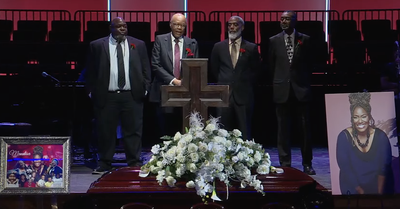Few will deny that AIDS kills. Since the beginning of the epidemic, approximately 21.8 million people have died of AIDS and some 15.6 million children have been orphaned.
"HIV/AIDS is often associated with death," agrees Mr. Meredith Long, director of international health for World Relief. "But our program, Mobilizing for Life, enables the infected to live a full and productive life for as long as they can, then have eternal life afterwards."
Long emphasized the importance of working through the church: "We want to mobilize and equip the church of Jesus Christ to bring life and hope to persons and families affected by AIDS, and to prevent the spread of AIDS by promoting healthy patterns of family life and sexual practice."
Who else but the church is uniquely able to minister to those with HIV/AIDS? As Long says, "The church brings hope that no one else does, in terms of life after death. But we also bring community and the presence of the Holy Spirit in people’s lives. We bring purpose and direction for those with HIV/AIDS to live life a longer period of time and to live more fully before they die."
Long believes that the church in the United States – as well as overseas – has been challenged to come to terms with questions of judgment and grace because of the way that AIDS is transmitted from one person to another. "In the U.S.," he explains, "it was heavily associated with the gay communities then intravenous drug use. Overseas the primary mode of transmission – in Africa certainly – is heterosexual contact either before marriage or outside of it."
All too often, stigma can stop those who are infected from getting help. Look at Botswana, says Long. Botswana is one of the most stable of the African states. It has a relatively small population and probably has the best extension of medical services. Thus, it was selected as an area of intensive Antiretroviral therapy by the Gates foundation, USAID and major pharmaceutical companies. Ironically, says Long, the therapy is still not very effective in Botswana -- simply because people refuse to be tested.
According to Long, "The reason they refuse to be tested is both a fatalism born of world view and the stigma of being diagnosed and being known as have HIV/AIDS. In this instance, there are resources available and the church really needs to extend its moral authority to be able to decrease the stigma involved in having HIV/AIDS."
Once the church is able to move beyond issues of stigma, grace and judgment, it can step into the role of teaching abstinence, the only thing that can truly prevent infection. HIV/AIDS prevalence has decreased in Uganda, according to Long, because of this primary behavior change – avoiding the risk entirely through faithfulness and abstinence.
"The church can effectively address issues of sexual behavior and sexuality starting at a young age," Long adds. World Relief has developed curricula on HIVAIDS and sexuality for African churches starting with elementary school children and preadolescents. "Often, by the time people reach adolescence, it’s too late."
In addition to teaching and prevention, Mobilizing for Life ministers to those who are affected. In Malawi, the churches form ministering committees that visit families in which someone has HIV/AIDS. They sit with the families and pray with them.
"To enter into the community of suffering of these families is a very important step in personalizing the disease," says Long.
Local preschools provide care and education to those who have been orphaned by HIV/AIDS, in addition to other poor kids in the community. Long explains the schools are mixed "because they don’t want to add to the stigma." The school frees parents to be able to do their agricultural work. In other areas, churches have given fields to HIV/AIDS affected families to be able to grow crops.
Long concludes: "God is really working in this mosaic of community based responses that to be sustained, don’t require a lot of outside input, only calling churches to do what Christ has called the church to do."










